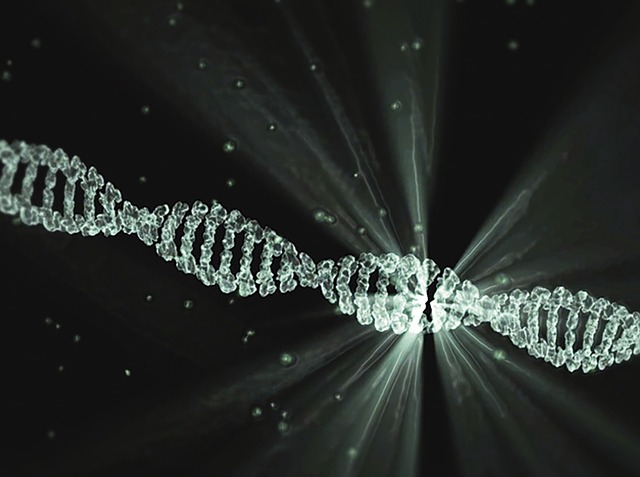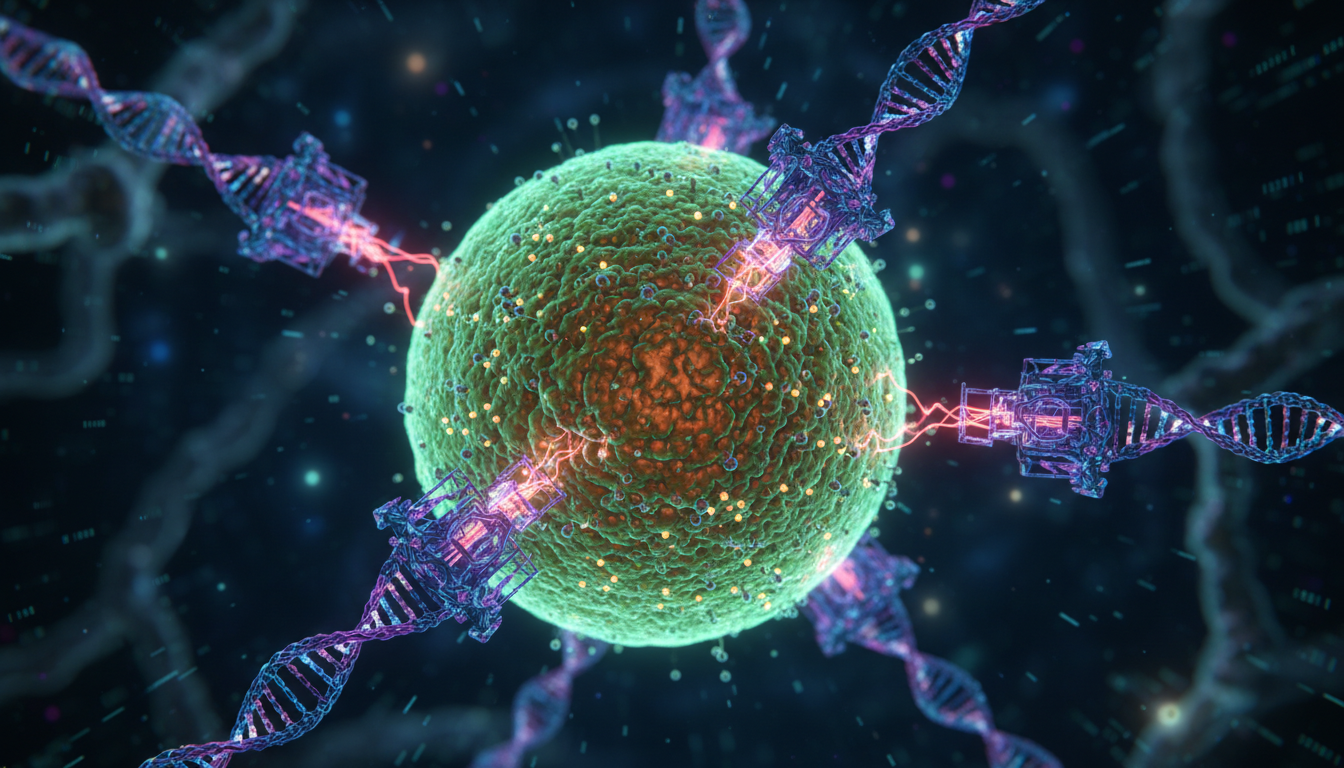[ez-toc]
Our understanding of cancer has undergone a dramatic transformation with the discovery of extrachromosomal DNA (ecDNA). This circular DNA, distinct from chromosomal DNA, has emerged as a critical player in cancer progression and drug resistance. Previously dismissed as mere fragments, ecDNA has gained prominence for its role in driving tumor evolution and shaping the landscape of cancer treatment.
The significance of ecDNA in cancer was first recognized in 2014, when a team of researchers at Stanford University made a groundbreaking observation. They noticed that ecDNA, found in various cancer types, could carry crucial oncogenes responsible for uncontrolled cell growth. These oncogenes, freed from the constraints of chromosomes, could amplify rapidly, accelerating the development of cancer.
We also Published
- Marburg Virus Disease: A Potential Pandemic Threat - Understanding the Risks and Prevention
Marburg virus disease (MVD) is a deadly hemorrhagic fever with pandemic potential. Learn about the risks, symptoms, transmission, and prevention measures to stay safe. - Ace the CBSE Board Exams 2025: A Complete Preparation Guide
Master the CBSE Board Exams 2025 with our comprehensive guide! We cover study plans, time management, stress reduction, exam day tips, and more. Get ready to excel! - Understanding Additive Identity in Mathematics
Discover the properties and significance of the Additive Identity in Mathematics. Learn with examples and explore its role in various mathematical operations.
The Impact of ecDNA on Cancer
Accelerated Cancer Evolution
ecDNA possesses an exceptional ability to amplify and evolve rapidly. It can quickly alter its copy number and even modify its genetic composition, enabling cancer cells to adapt to changing conditions, such as the presence of anti-cancer drugs.
Drug Resistance
ecDNA plays a significant role in the development of drug resistance, a major challenge in cancer treatment. By rapidly changing its genetic composition, ecDNA can outmaneuver chemotherapy drugs, allowing cancer cells to evade the effects of treatment.
Supercharged Growth
The presence of ecDNA can fuel uncontrolled cell growth, driving the rapid proliferation of cancer cells. This accelerated growth contributes to tumor progression and metastasis.
Breaking the Paradigm: ecDNA and Mendelian Inheritance
Challenging Traditional Genetics
The discovery of ecDNA has challenged traditional genetic principles, particularly those based on Mendelian inheritance. Unlike chromosomal DNA, ecDNA does not follow the established rules of independent assortment, which dictates that genes are inherited independently of one another.
Coordinated Inheritance
ecDNA molecules can be inherited together in a coordinated manner. This coordinated inheritance allows cancer cells to maintain a specific combination of beneficial genetic changes, enhancing their ability to survive and thrive.
Harnessing the Power of ecDNA for Targeted Therapies
Exploiting ecDNA Vulnerabilities
The unique properties of ecDNA provide new opportunities for targeted therapies. Scientists are exploring strategies to exploit these vulnerabilities, aiming to combat cancer by specifically targeting ecDNA.
Disrupting Coordinated Inheritance
One promising therapeutic approach involves disrupting the coordinated inheritance of ecDNA molecules. By interfering with the process that allows beneficial combinations of ecDNA to be passed together to daughter cells, researchers hope to curb the adaptive capabilities of cancer cells.
Synthetic Lethality
Another strategy leverages the concept of synthetic lethality, which refers to the simultaneous disruption of two genes that are individually non-lethal but deadly together. Researchers are exploring ways to exploit the synthetic lethality of ecDNA, targeting specific pathways that are essential for ecDNA function.
"The discovery of ecDNA has opened a new chapter in cancer research, providing a fresh perspective on tumor evolution and treatment resistance." - Dr. Maria Jasin, a leading researcher in cancer genetics
The Future of Cancer Treatment
The discovery of ecDNA has sparked a wave of excitement and optimism in the field of cancer research. By understanding the unique mechanisms of ecDNA and its role in cancer progression, scientists are now equipped to develop more effective and targeted therapies.
A New Era of Personalized Medicine
ecDNA research is poised to revolutionize cancer treatment, paving the way for personalized medicine. By identifying the specific ecDNA profiles of individual patients, doctors can tailor treatment plans based on their unique genetic makeup.
Developing Targeted Therapies
Research efforts are focused on developing novel therapies that specifically target ecDNA. These targeted therapies aim to inhibit the amplification and inheritance of ecDNA, ultimately suppressing tumor growth and reducing drug resistance.
The journey to conquer cancer is ongoing, and the discovery of ecDNA has added a powerful tool to our arsenal. By further unraveling the mysteries of ecDNA, scientists are paving the way for a brighter future for cancer patients.
RESOURCES
- Extrachromosomal DNA in cancer
- Pioneering insights of extrachromosomal DNA (ecDNA) ...
- Understanding the Effects of Extrachromosomal DNA on ...
- Using AI, researchers launch database to predict cancer DNA ...
- Extrachromosomal DNA - an overview
- Extrachromosomal DNA (ecDNA) in cancer: mechanisms, ...
- Extrachromosomal DNA (ecDNA) in cancer pathogenesis.
- Imaging extrachromosomal DNA (ecDNA) in cancer
- Extrachromosomal DNA: Biogenesis and Functions in ...
- Cancer Being Extra: Extrachromosomal DNA Promotes ...
- Tumor extrachromosomal DNA: Biogenesis and recent ...







0 Comments